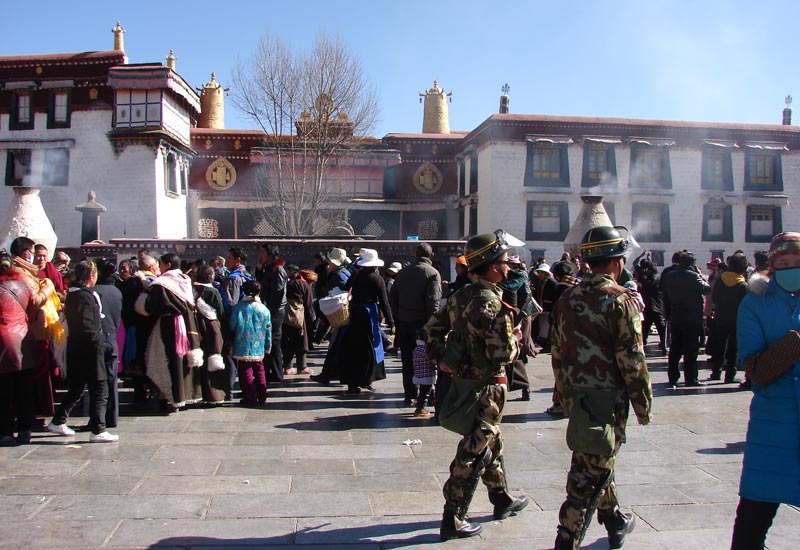 Dharamshala: - Lhasa. the capital of Tibet witnessed the opening of so called Tibet's first 5 star Hotel on Saturday (28th May). The Tibetan - monastic design of ‘St. Regis Lhasa Resort' was inspired by the nearby and still-active Sera Monastery. It is the highest altitude hotel in the world, and marks a dawn of new visitors to Tibet: luxury travelers.
Dharamshala: - Lhasa. the capital of Tibet witnessed the opening of so called Tibet's first 5 star Hotel on Saturday (28th May). The Tibetan - monastic design of ‘St. Regis Lhasa Resort' was inspired by the nearby and still-active Sera Monastery. It is the highest altitude hotel in the world, and marks a dawn of new visitors to Tibet: luxury travelers.
Beijing is dramatically changing its hand in Tibet. Over recent decades, tourism to the region has been highly restricted - at times prohibited. However the flagship plan for St. Regis together with five similar five-star hotels and local boutique hotels, is part of the governments' goal to attract more tourist travel to the area; along with the vast sums of money that come with such enterprises. Beijing hopes the region will attract 15 million tourists per year by 2015.
|Visitors to Tibet rose by 40 percent in April, and numbers are expected to exceed 300,000 in 2011.
Smaller, ‘inactive' temples such as the 300-year-old Jokhang Temple, are now being converted into boutique hotels to meet the demand of luxury travelers to Tibet. The great tragedy for these once beautiful buildings is that after the cultural revolution, they remained as ruins. These sacred, historical sites have been vital for Tibetan culture in the past. To see them converted into money making businesses for tourists is a great blow for Tibetan identity. Naturally the money is going to the Chinese who own the hotels, and there is no mention of Tibetans benefiting form the enterprise.
The sacred Sera Monastery is a major tourist attraction to Lhasa. Built in 1419, it is an integral relic of Tibet. Aspects of the beautiful Tibetan architecture were taken and used for the St. Regis hotel; particularly the inner spaces, courtyards and the dramatic features of the walls.
Ironically, Western tourists who visit Tibet often express a wish to experience ‘Tibetan culture', yet the hotels they reside in themselves destroy this; being built from the foundations of Tibetan religious sites. In addition, large numbers of Han migrants who enter with aims of attracting more tourists to Tibet dilute the fragile culture. It is obvious that Beijing is greatly benefiting from the tourism aspect of Tibetan culture, yet it continues to repress religious freedom and even the most basic human rights.
Every new hotel is fast becoming the loss of a precious Buddhist site in Tibet.


![Tibet has a rich history as a sovereign nation until the 1950s when it was invaded by China. [Photo: File]](/images/stories/Pics-2024/March/Tibet-Nation-1940s.jpg#joomlaImage://local-images/stories/Pics-2024/March/Tibet-Nation-1940s.jpg?width=1489&height=878)















